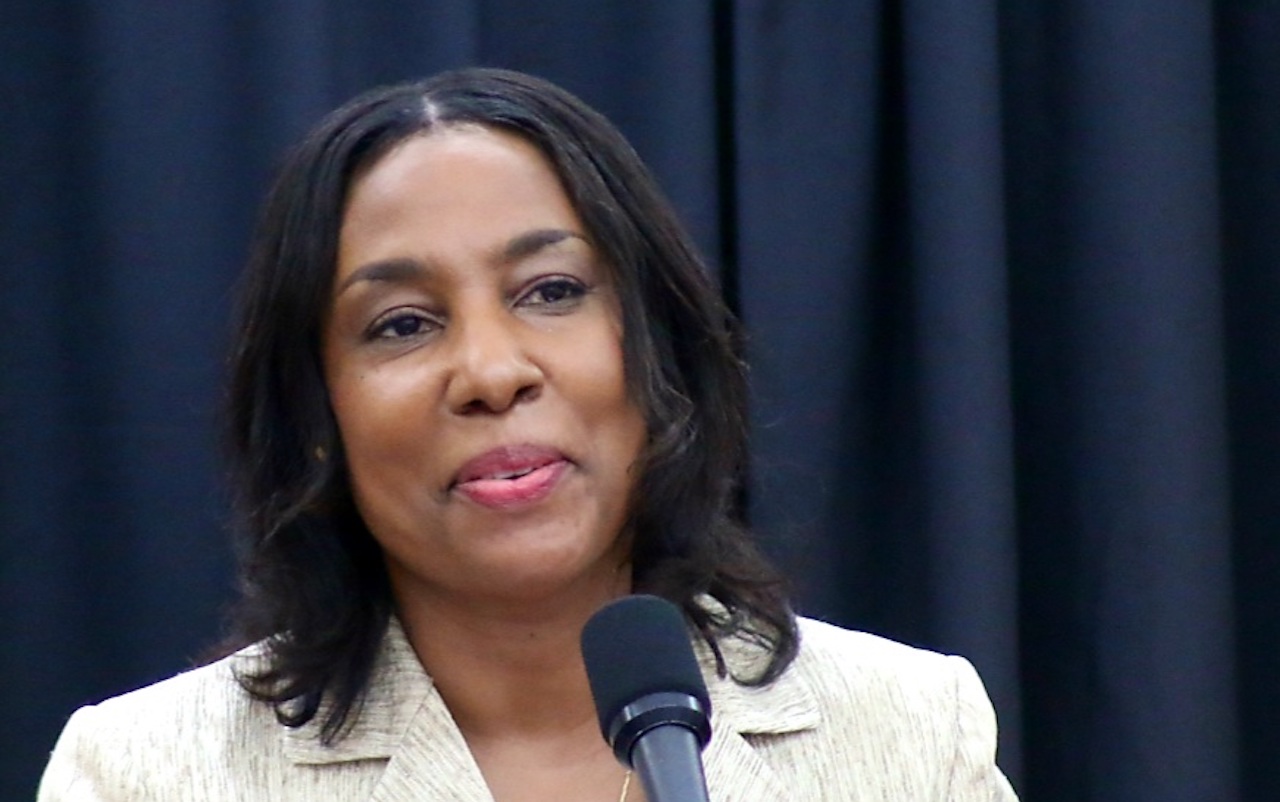With four months still to go with a cap on several food and household items at the supermarket, Chairman of the Barbados Private Sector (BPSA) Trisha Tannis is issuing an early warning that the private sector will be hard-pressed to maintain this Compact once it comes to an end on January 31, 2023.
In fact, explaining that the business community continues to grapple with high and rising prices that were out of its control, Tannis said perhaps the time had come for Government to take another look at incoming freight costs, which continue to be a major headache for businesses.
Effective midnight March 14, the cost of freight was capped at $7,350 per 20-foot container and $8,000 for 40-foot containers, which represented the average costs of freight in 2019. This measure is to last one year.
“So when we get to the end of these initiatives, what lies beyond is something that we need to come back to the table and discuss. Can we we keep it (the cap on food and household items) much longer? I don’t think that we can. What else can be done is a very good question at this point,” said Tannis.
“The Government is sacrificing as part of the Compact as well. The period of time that is about to lapse where they are going to . . . reevaluate whether or not they can lift the cap that they have placed on the inward freight is something that we have to look to see what happens there
“We are not seeing those freight rates normalise, not back to pre-COVID levels. They have abated somewhat relative to 2021, but they are still excessive, at least twice what they were pre-COVID,” she said.
Her comments came in response to the controversy over whether some supermarkets were adhering to the capping of prices on the 47 items included on a Value Added Tax (VAT)-free list, which took effect at the end of July. In some cases, customs duties were removed from certain items paving the way for reduced prices to consumers.
Recently, Prime Minister Mia Mottley disclosed during a press conference that “majority of the people are working with the prices that have been recommended. There are a few instances – two or three – in some commodities, where people are still charging more”.
“I suppose people will balance those higher charges with convenience and determine whether that is a price they are prepared to pay, especially since in some instances they are smaller units that may have a limited base,” said Mottley.
Earlier this week, Minister of Elder Affairs and Empowerment Kirk Humphrey noted that he was aware of “some of the bigger stores” where their prices did not reflect the commitment that they made.
“I have seen it in smaller places as well,” he added.
However, acknowledging that price increase was a “sensitive issue” for many residents who have been forced to change their eating habits in order to minimise the impact, Tannis dismissed the notion that those involved in the Compact with government to cap the prices were not doing so.
“What we have seen and what we have heard from the retailers that are party to the Compact is that there have been some shifts in prices but they have stayed true to their commitment on those 47 items in relation to freezing the mark-up,” she said, adding that the recently published data from the monitoring mechanism by Government “showed clearly there was broad compliance with the Compact”.
She reiterated that the Barbados Private Sector Association did not have control over the informal sector and smaller independent operators and it was possible some of the continued high prices were among those players.
“The signatories to the Compact are the larger players that we are satisfied represent about 70 per cent market share in Barbados. However, we don’t have control over mini marts and other small independent players. We do appeal to them to follow the spirit and intent of the Compact but we really don’t have control over that sector,” said Tannis.
She explained that while people were quick to blame the private sector whenever they see a change in price from one week to the next, it was important to understand that there were several variables that go into pricing of the goods on the shelves including that of freight.
“There are so many other variables that input into a price, not the least of which is the original invoice cost of that product,” said Tannis.
“Most notably would be the price of fuel, and that essentially has been the case over the last few months, but we have actually, with all of the feedback, been continually keeping in contact with the signatories to the Compact and are satisfied that there is broad compliance,” she said.
She further explained that the private sector “from the onset, made it clear there were a couple of things, that while we froze the mark-ups, we had no control over the price of origination”.
“What that means is that prices are still going to be fluctuating as international prices fluctuate and of course, as long as your inventory lasts. So we set that expectation straight out front. Therefore, whilst there is a targeted price at that point in time, it would have been on a case on all things being equal and continuing,” she explained.




